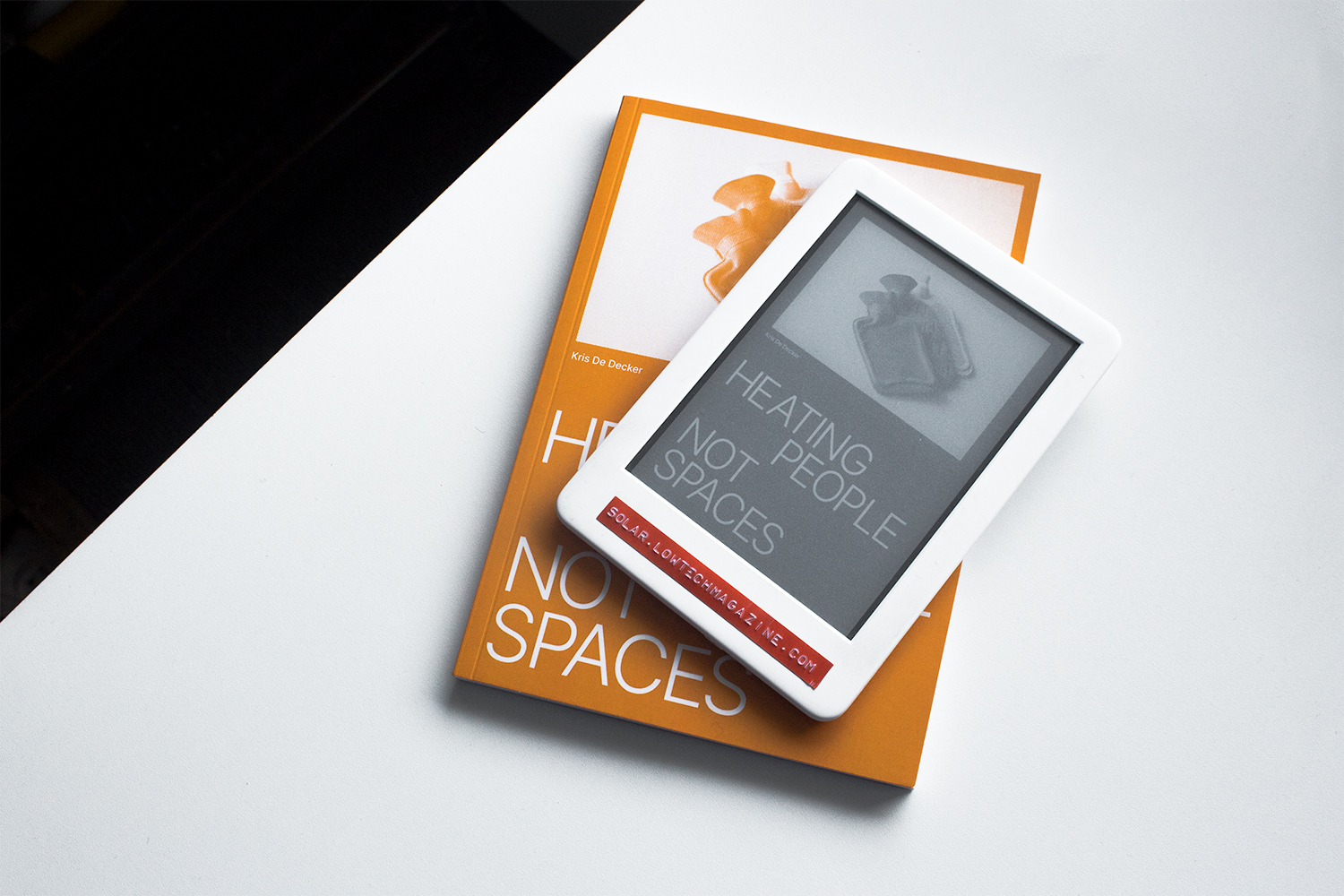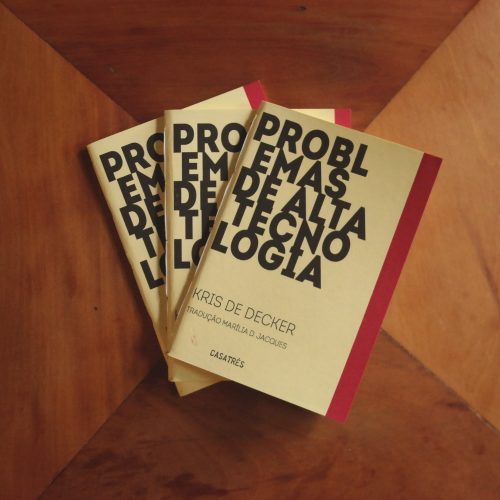Low-tech Magazine Ebook Editions
Low-tech Magazine now offers its complete book collection in epub format. Find all ebooks in our online bookshop: payhip.com/LOWTECHMAGAZINE
Patrons get free access to all ebooks: patreon.com/lowtechmagazine.
Low-tech Zine
Brazilian “mini-publisher” Casatrês made a beautiful zine which includes three articles from Low-tech Magazine, translated into Portuguese. It is for sale on their website.
The Smart Wife: Why Siri, Alexa, and Other Smart Home Devices Need a Feminist Reboot
In The Smart Wife: Why Siri, Alexa, and Other Smart Home Devices Need a Feminist Reboot, Yolande Strengers and Jenny Kennedy examine the emergence of digital devices that carry out “wifework”–domestic responsibilities that have traditionally fallen to (human) wives. They show that the principal prototype for these virtual helpers–designed in male-dominated industries–is the 1950s housewife: white, middle class, heteronormative, and nurturing, with a spick-and-span home. It’s time, they say, to give the Smart Wife a reboot.
Low tech? Wild tech!
The French scientific magazine Techniques et Culture has published an entire volume about alternative forms of technology: “Low-tech? Wild tech!“. The 300-page issue explores the differences and conflicts between high-tech and low-tech, with a focus on all the forms of technology which are in between these extremes.
The authors argue for a more sophisticated view of technological evolution, which is now usually seen as linear progress towards ever increasing complexity and perfection. The contributions show that reality is much more complicated, and much more interesting.
The issue is the fruit of a three-day discussion in Paris in 2012, in which I participated. The volume features a translated article from Low-tech Magazine: “How to build a low-tech Internet?”. “Low tech? Wild tech!” will be presented and discussed in Paris on December 9, 2017.
Hacking Consumer Electronics: The Low-tech Way
The paragraphs below are taken from “100 Deadly Skills: The SEAL Operative’s Guide to Eluding Pursuers, Evading Capture, and Surviving Any Dangerous Situation“, a book that’s not available on WikiLeaks but on Amazon. Written by a retired Navy Seal, Clint Emerson, the book describes skills “which all rely on low-tech or no-tech tools, because complicated instructions are the last thing you need when facing imminent peril”.
Skill No.55: TURN A SPEAKER INTO A MICROPHONE
 “Stashing a voice-activated recording device in a target’s room or vehicle is relatively simple, but without sound amplification, such a setup is unlikely to result in audible intelligence — a proper audio-surveillance system requires amplification via microphone. In the absence of dedicated tools, however, the Nomad can leverage a cell phone, an audio jack, and a pair of headphones into an effective listening device.”
“Stashing a voice-activated recording device in a target’s room or vehicle is relatively simple, but without sound amplification, such a setup is unlikely to result in audible intelligence — a proper audio-surveillance system requires amplification via microphone. In the absence of dedicated tools, however, the Nomad can leverage a cell phone, an audio jack, and a pair of headphones into an effective listening device.”
“Because microphones and speakers are essentially the same instrument, any speaker — from the earbuds on a pair of headphones to the stereo system on a television — can be turned into a microphone in a matter of minutes. The simple difference between the two is that their functions are reversed. While a speaker turns electronic signals into sound, a mic turns sound into electronic signals to be manipulated and amplified…”
“Any small recording device can be employed, but using a phone set to silent and auto answer as a listening device has two advantages: It captures intelligence in real time and does so without the operative having to execute a potentially dangerous return trip on target to collect the device…”
From: “100 Deadly Skills: The SEAL Operative’s Guide to Eluding Pursuers, Evading Capture, and Surviving Any Dangerous Situation“, Clint Emerson, 2015.









